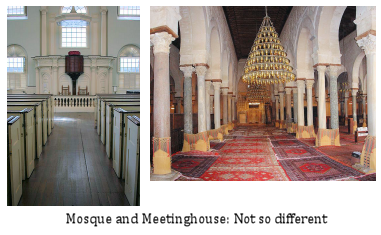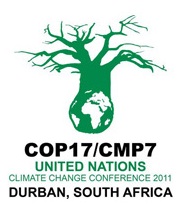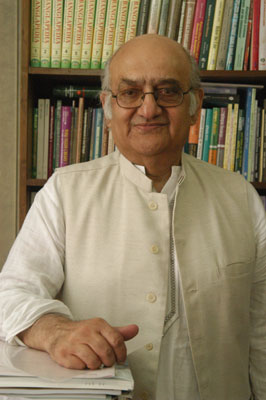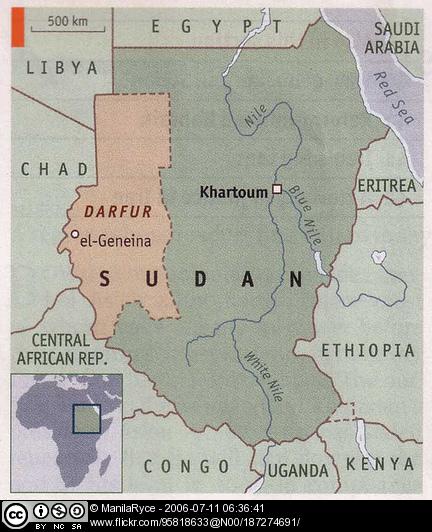
Many Trails to Freedom: Islamic Democracy is not an Oxymoron
“I disapprove of what you say, but I will defend to the death your right to say it.” – Voltaire. Over Christmas I visited Boston and had the occasion to walk the famous freedom trail: 3 miles of sights commemorating American independence. As I walked this hallowed ground I pondered on those fighting for freedom today, in the streets of Cairo, Homs and Tunis. Having met some of these people, I wondered at the suspicion we direct at the Islamic parties now gaining power, as if we forgot our own history. American democracy was born of Puritan principles of self-government, but that did not prevent it from evolving into the (more or less) secular body it is today. Ignoring this …
China’s Politics of Tobacco Control
Recognizing that tobacco consumption has become a leading cause for premature death worldwide, the international community, under the auspice of WHO, successfully developed the Framework Convention on Tobacco Control (FCTC) with unanimous adoption by the 192 member states in May 2003. It is the first time that the Organization has used its constitutional right to develop an internationally legal instrument in global health governance. Therefore, it is a seminal event in global health. It also represents an unprecedented collective action to curb the global tobacco epidemic. The convention came into force in February 2005. With 174 party members covering 87% of the World’s population, the FCTC has been among the most widely and rapidly embraced international conventions devoted to health …
Sick Men of South Asia
Pakistan and Bangladesh are separately traveling in the same direction, toward erasure from the political maps of the future. Pakistan ceased to exist 40 years ago. The secession, in 1971, of East Pakistan on the grounds of being Bengali rather than Muslim conclusively disproved the Two Nation Theory—even for those who had believed in it in the first place. If Pakistan wasn’t the homeland for South Asia’s Muslims, what was it? After the war, Pakistan could have rethought the basis of its existence as a political entity but didn’t. Instead, the Pakistan which remained tried to carry on, pretending that it was still the land of South Asia’s Muslims, just smaller … It never figured out why it should exist …
North Korea After Kim Jong-il
In the wake of the rather premature death of North Korean leader Kim Jong-il at the age of 69, North Korea is expected to enter a period of violent turmoil and power struggle. Kim’s heir apparent is his youngest son Kim Jung-un, who is perhaps too young in his twenties and too inexperienced in political and military affairs to receive natural respect from his fellow Koreans, particularly in the context of a socialist Confucian culture. In the expected battle royal, he will face a strong rival in his uncle Jang Seong-taek, whose wife is Kim Jong-il’s only sister and who has a strong link to the military leadership through his elder brothers (one of them, Jang Seong-U, was the commander …

EU and China’s institutional diplomacy in the field of climate change.
Forthcoming Occasional Paper to be published by the European Union Institute of Security Studies (EU ISS). Author: Pietro De Matteis. Summary and Policy Recommendations. This Occasional Paper aims at giving another perspective on the relevance of climate change for the EU’s foreign policy. Considering its linkages with various policy areas such as energy security, economic growth, foreign policy and even political stability, climate change is a major “game-changer” in international relations, and constitute a significant opportunity to reshape the international order according to the new global equilibria. As such, the set up of the climate change regime constitutes for the EU both an opportunity and a threat, in as much as it may either accelerate Europe’s decline as a …
One small step for a Chinese, one big step for China. Is the space race really a sign of China’s new confidence?
When westerners think about China, the concept that springs more and more to mind is modernity. This seems surprising when one looks at the statistics – after all, the developing middle class, an indicator of a more urban and modernizing society, is still a minority (perhaps 300 million of China’s 1.3 billion population), albeit a fast-growing one, and China remains a very poor country in terms of per capita GDP, as well as substantially rural. Yet in other areas, it’s clear that China is placing itself at the forefront of our understanding of what it means to be a modern state. One iconic area in this regard is space technology: the Chinese Shenzhou programme of space exploration seems particularly daring …

Challenging the Injustice of Poverty: a Conversation with Rehman Sobhan
Last week, Professor Rehman Sobhan, Chairman of the Center for Policy Dialogue in Dhaka, Bangladesh, visited the UN Development Programme in New York City to discuss his most recent book. I had the opportunity to speak with Professor Sobhan about the motivation behind his work and learn about the years of field research that preceded it. Challenging the Injustice of Poverty: Operationalizing an Agenda for Inclusive Development Across Southeast Asia is a culmination of Professor Sobhan’s efforts to understand the roots of economic exclusion across 5 countries over the past 4 years. At its core is Sobhan’s uncompromising insistence on identifying the source, as opposed to merely addressing the symptoms of poverty. According to Sobhan, poverty is not a social …

China and India in Sudan: an Uncertain Relationship
On June 21, at the Manor Road Building, Oxford University, Daniel Large and Luke Patey discussed the role of China and India in Sudan’s oil sector. This industry is of particular interest today, as on the 9th of July the country will split into Northern Sudan and Southern Sudan. The recent border clashes illustrate the lack of agreement between the two sides about the sharing of oil revenues. The two speakers situate this issue within an international context by contrasting the involvement of China and India and discussing the long-term prospects of Sudan’s oil industry, among other interesting questions. China’s involvement in Africa has become a hot topic in media and political discussions. This has concealed that of other Asian …









